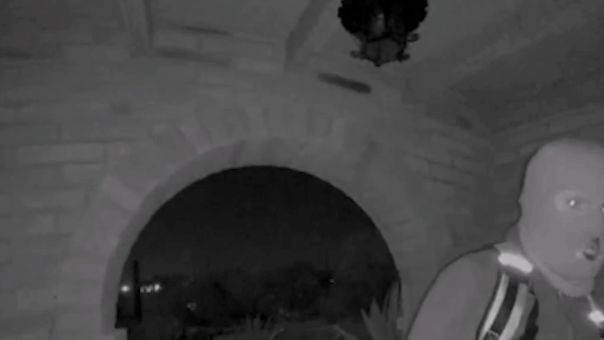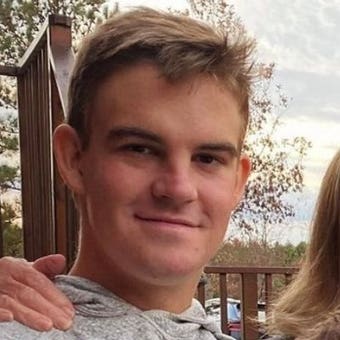Kenosha community braces for Rittenhouse verdict aftermath
Fox News correspondent Garrett Tenney reports the latest as the jury continues deliberations.
The 36 pages of jury instructions Judge Bruce Schroeder gave the seven women and five men who will decide 18-year-old Kyle Rittenhouse's fate are back in the spotlight after one of the jurors asked if they could take the instructions home Thursday.
Judge Schroeder granted the request but he noted to the prosecution and defense that the jury instructions, which describe the relevant legal points and charges, are "very confusing."
Defense attorney Mark Richards appeared hesitant about the request.
"I’m afraid it’s going to be the old dictionary game and they start defining words and things like that, outside research. That’s my concern," Richards said in court.
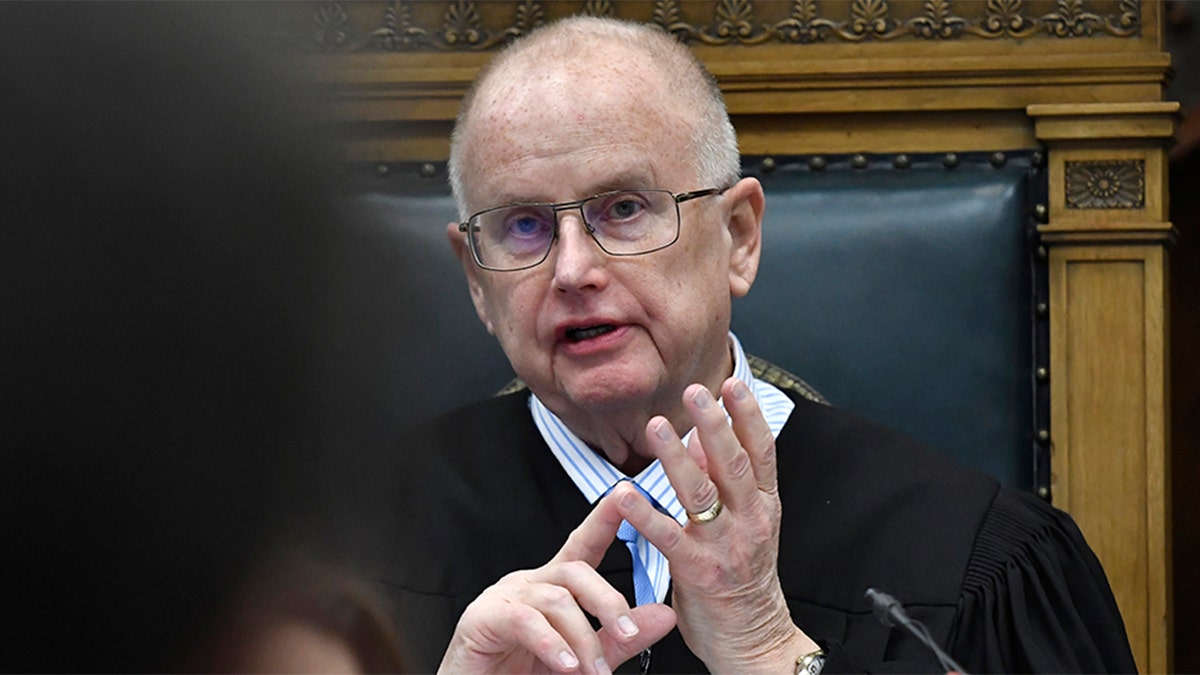
Judge Bruce Schroeder speaks to attorneys about how the jury will view evidence as it deliberates during Kyle Rittenhouse's trial at the Kenosha County Courthouse in Kenosha, Wis., Wednesday, Nov. 17, 2021. (Sean Krajacic/The Kenosha News via AP, Pool)
The prosecution and defense spent all day Friday hashing out the directions and Judge Schroeder continued taking edits from the bench on Monday. Then, just hours into the first day of deliberations on Tuesday, the jurors requested full copies of the instructions for each member.
Rittenhouse, who shot and killed two men and wounded a third during unrest in Kenosha last August, is facing five charges: first-degree reckless homicide, first-degree intentional homicide, attempted first-degree intentional homicide, and two counts of first-degree recklessly endangering safety.
The judge dropped one charge of a minor in possession of a firearm on Monday after Rittenhouse's defense pointed out a subsection in Wisconsin law on short-barreled rifles. Rittenhouse was also charged with being on the streets of Kenosha past 8 p.m., but the judge tossed that charge during the trial.
KYLE RITTENHOUSE: BIG MOMENTS IN TRIAL OF ACCUSED KENOSHA SHOOTER
The jury instructions explain that "the state must prove by evidence which satisfies you beyond a reasonable doubt that the defendant did not act lawfully in self-defense."
"The law of self-defense allows the defendant to threaten or intentionally use force against another only if: the defendant believed that there was an actual or imminent unlawful interference with the defendant's person; and the defendant believed that the amount of force that the defendant used or threatened to use was necessary to prevent or terminate the interference; and the defendant's beliefs were reasonable," Judge Schroeder wrote in the instructions.
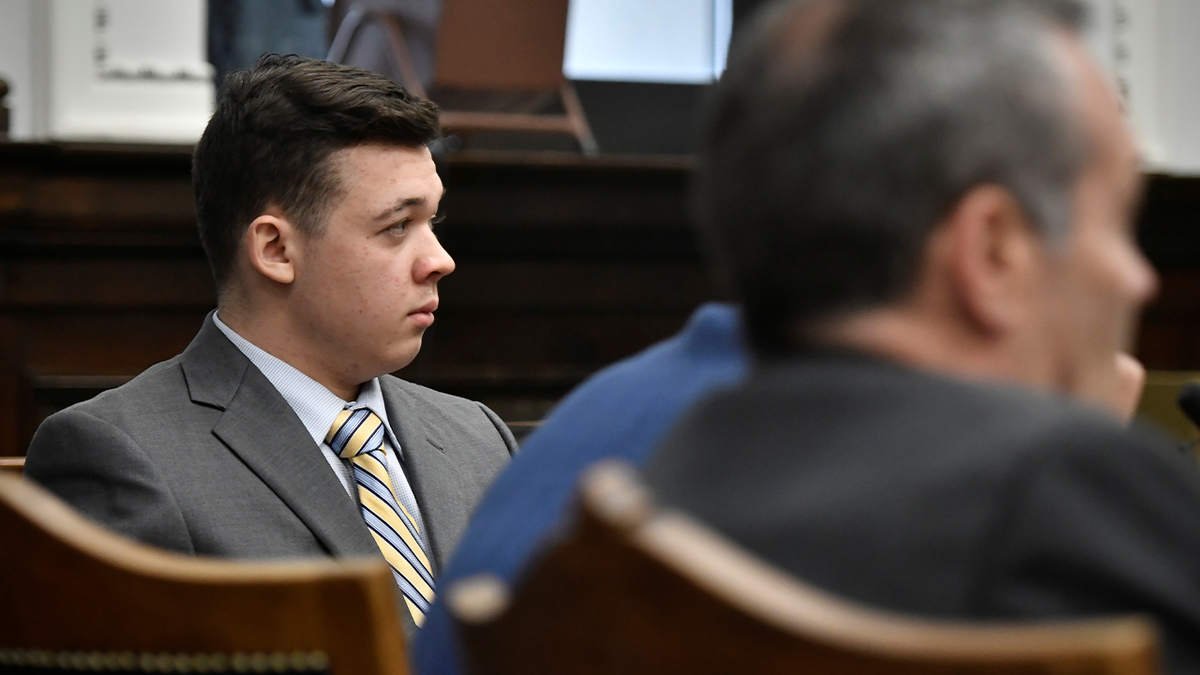
Kyle Rittenhouse listens as Judge Bruce Schroeder talks about how the jury will view video during deliberations in his trial at the Kenosha County Courthouse in Kenosha, Wis., Nov. 17, 2021. Sean Krajacic/Pool via REUTERS
Notably, Wisconsin has imperfect self-defense, which means that "a belief may be reasonable even though mistaken."
"You don't typically have that. Like in California, it's not reasonable, it's not self-defense. But you have this unreasonable subjective self-defense," Neama Rahmani, a former federal prosecutor, told Fox News. "That's what makes the law a little more complicated."
KYLE RITTENHOUSE TRIAL: WHO ARE JOSEPH ROSENBAUM, ANTHONY HUBER AND GAIGE GROSSKREUTZ?
Jurors also must consider "whether the defendant had the opportunity to retreat with safety" and "whether the defendant provoked the attack."
Prosecutors argued that Rittenhouse did not have to resort to firing his weapon during the unrest.
"He did not exhaust his duty to retreat, he did not exhaust all of his options," Assistant District Attorney James Kraus said during closing arguments.
Rittenhouse, who said he went to Kenosha to provide first aid and protect businesses from looters, testified at trial that Joseph Rosenbaum threatened to kill him earlier in the night and tried to grab his gun.
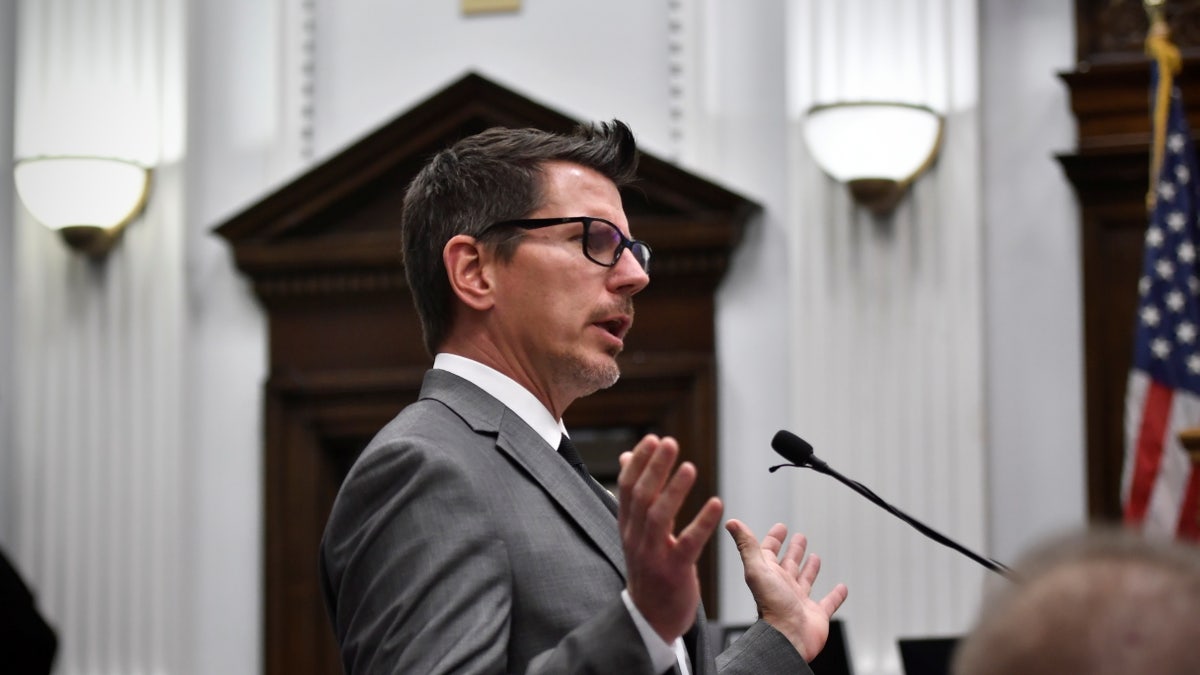
Assistant District Attorney Thomas Binger gives his closing argument during Kyle Rittenhouse's trial at Kenosha County Courthouse, in Kenosha, Wis., Nov. 15, 2021. Sean Krajacic/Pool via REUTERS
"I didn't do anything wrong," he told the jurors last week. "I defended myself."
Judge Schroeder also gave the jury the option of weighing lesser charges for first-degree intentional homicide and attempted first-degree intentional homicide.
CLICK HERE TO GET THE FOX NEWS APP
While the 36 pages may seem daunting, Rahmani said voluminous instructions are typical in a case this complex.
"Given the number of victims, the number of charges, it's really par for the course," Rahmani said.
Jurors have been deliberating for roughly 23 1/2 hours over three days. They will return to the courthouse at 9 a.m. CT Friday.
The Associated Press contributed to this report.











